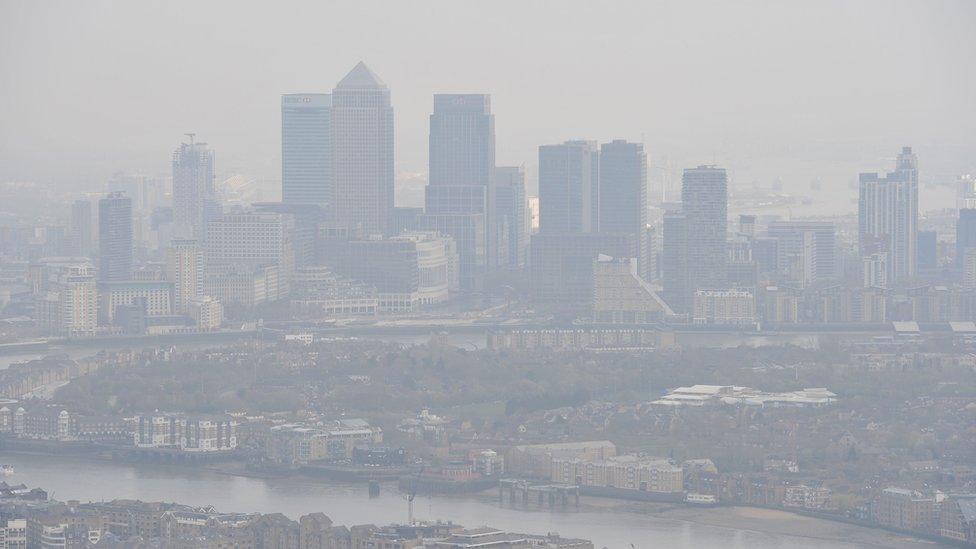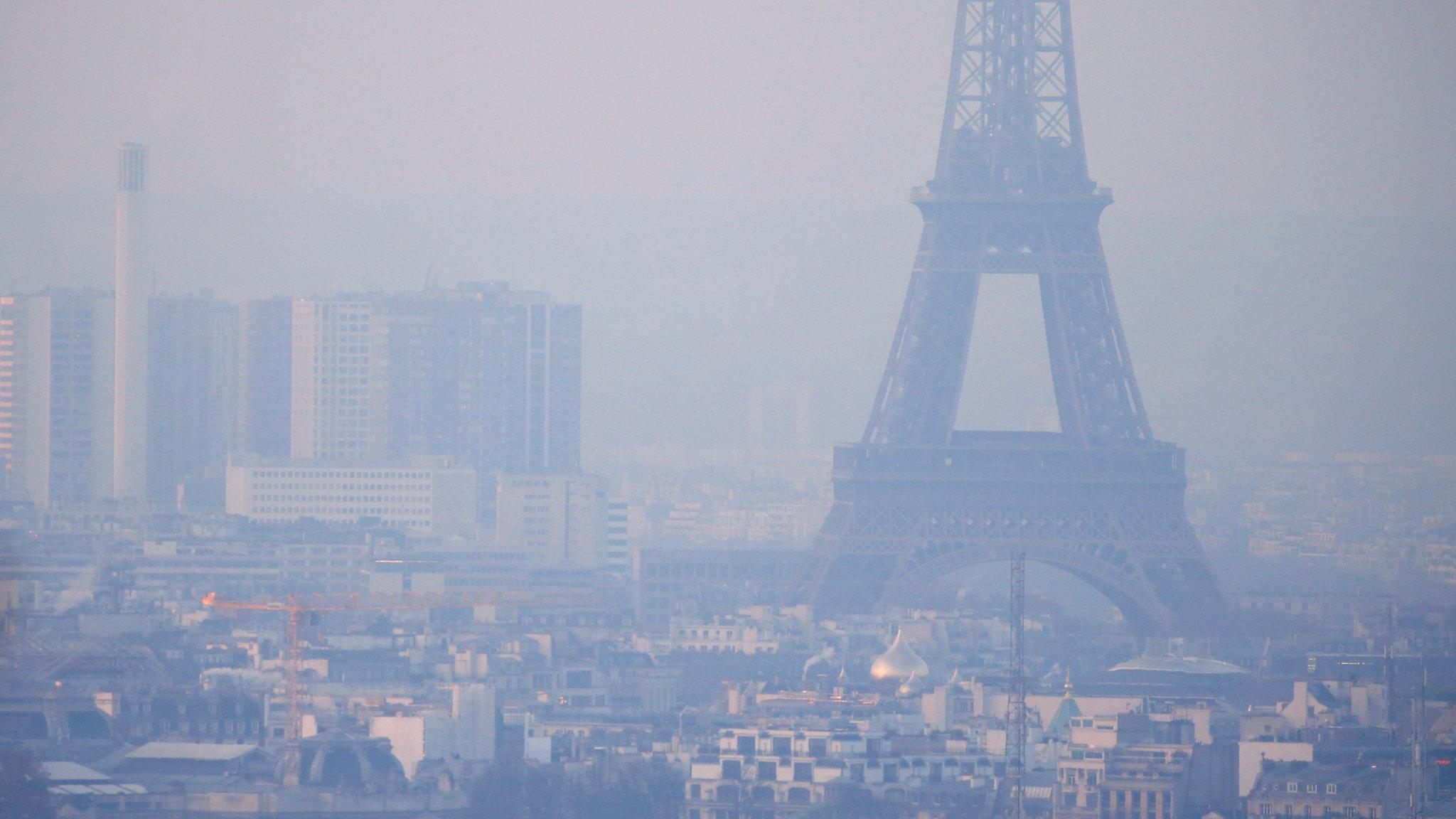Health workers urge PM to take action on toxic air
- Published

A "high" air pollution alert was triggered in London on Tuesday and Wednesday
More than 200 health professionals have written to the prime minister urging him to take action on air pollution.
It follows a letter from 36 top scientists sent to Number 10 last week.
The latest letter has signatories from some 209 GPs, nurses, paediatricians, radiologists, psychotherapists and other hospital staff.
The government said it had made "significant improvements" in air quality since 2010 but "we recognise there is more to do".
The letter comes after the triggering of a "high" air pollution alert in London on Tuesday and Wednesday.
The letter was written to mark Clean Air Day and was organised by campaigning cycling group Ride for their Lives, which calls itself "an international collaboration of healthcare providers riding together to explore the actions we must take to protect the planet for our patients and children".
It reads: "The scientists have given us disturbing evidence but we, as health care providers, are left on the frontline with the heartbreaking impacts.
"We deal with children struggling to breathe, parents grieving lost babies, adults suffering from cancer, heart attacks, stroke and dementia. All made more common by the toxic air we breathe."The healthcare workers say in their appeal to Prime Minister Rishi Sunak that interventions like the ultra-low emission zone (ULEZ) in the capital and similar schemes across the country are needed to protect their patients' health.
"Sadly there are very few effective actions that our patients can take to reduce their personal exposure," the letter reads.
"Much more powerful are the interventions that only coordinated action from national, regional and local governments can achieve.
"These include providing environments where our patients can travel safely on foot and by bike, ultra-low emission and clean air zones as in London, Newcastle and other cities, local traffic control solutions such as school streets, and effective regulation of wood burning in urban areas.
"The science shows that this clears the air, reduces hospitalisation and makes our frontline work easier.
"It is deeply worrying that some politicians have chosen to deny the science and promote delay and disinformation. We call on you to set an example to your peers."
One of its authors, paediatric intensivist Dr Mark Hayden, said of the letter: "Really it was a reaction to reading the scientists' letter, and obviously the scientists felt under attack from various places, which I think I can understand, knowing the landscape in discussing things like ULEZ and other air quality topics.
"We were really just putting the headline diseases that people know about in the letter, to keep it simple and short."
Responding to the letter, a Department for the Environment, Food and Rural Affairs (Defra) spokeswoman said: "While local authorities have a responsibility to tackle air quality in their areas, the government has delivered significant improvements in air quality at a national level since 2010, with emissions of fine particulate matter and nitrogen oxides down by 10% and 45% respectively - but we recognise there is more to do.
"Our Environmental Improvement Plan sets out how we will drive down emissions from domestic burning, agriculture, transport and industry, while the Air Quality Strategy sets out our expectations of local councils to improve air quality for their residents."

Follow BBC London on Facebook, external, Twitter , externaland Instagram, external. Send your story ideas to hellobbclondon@bbc.co.uk, external
Related topics
- Published14 June 2023
- Published22 September 2021
